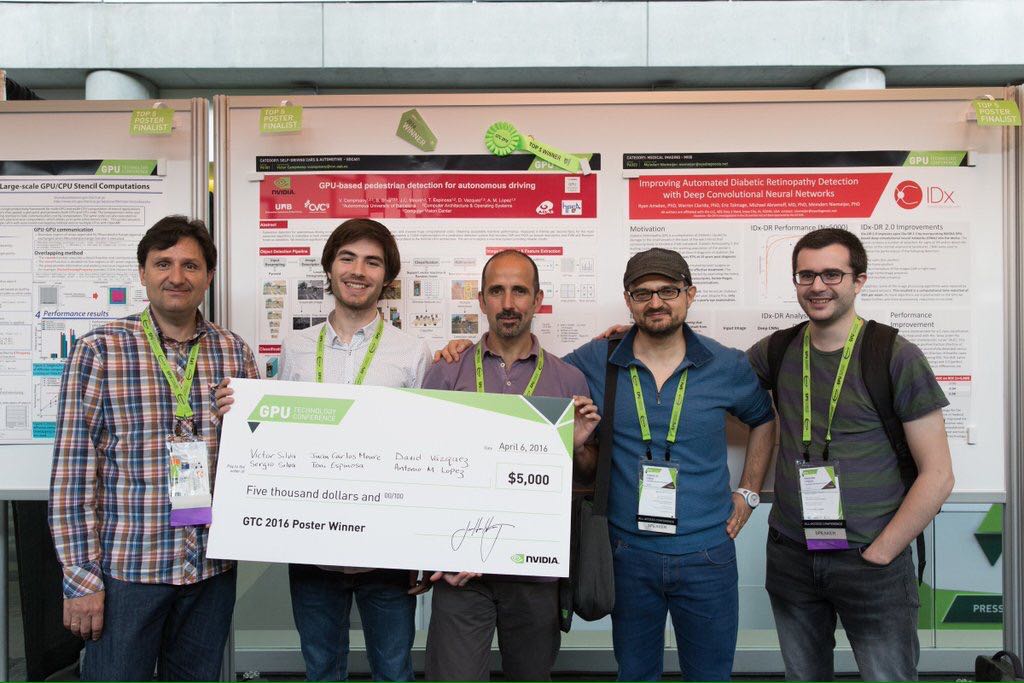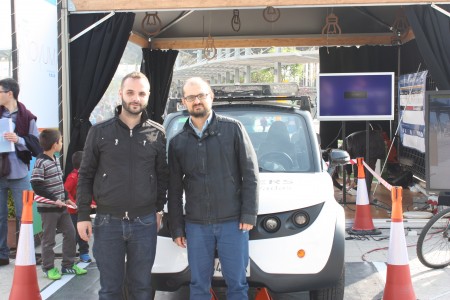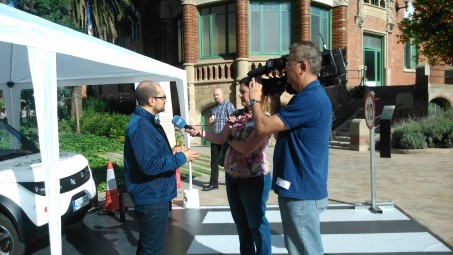
GTC 2016 Autonomous Driving Talk
5th of April, Antonio M. López principal investigator at ADAS group, will give a talk about “Training My Car to See: Using Virtual Worlds” at theGPU Technology Conference
Learn how realistic virtual worlds can be used to train vision-based classifiers that operate in the real world, i.e., avoiding the cumbersome task of collecting ground truth by manual annotation. Many vision-based applications rely on classifiers trained with annotated data. We avoid manual annotation by using realistic computer graphics (e.g. video games). However, the accuracy of the classifiers drops because virtual (training) and real (operation) worlds are different. We overcome the problem using domain adaptation (DA) techniques. In the context of vision-based driver assistance and autonomous driving, we present our DA experiences using classifiers based on both handcrafted features and CNNs. We show how GPUs are used in all the stages of our training and operation paradigm.





